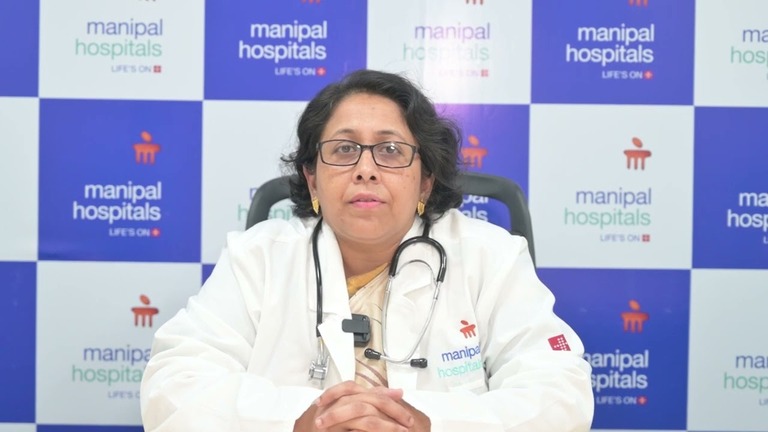
How To Handle Medical Emergencies: A Guide For Everyone

Department of Accident and Emergency Care

4 Min Read
Jul 04, 2023

Book Appointments &Health Checkup Packages

Book Appointments &Health Checkup Packages





The Department of Accident and Emergency Care in India at Manipal Hospitals treats everything from life-threatening crises like heart attacks and strokes to the likes of cuts and fractures with the same care. Available 24x7, ED treats infants, children, adolescents and adults in the need of all kinds of medical emergency.

The emergency department in India at Manipal Hospital has a team of multidisciplinary doctors, nurses trained in critical care and emergency, and specialists who are available around the clock. Once the patient is admitted, a triage of nurses examines and allows a zone to the patient depending on the severity of the condition. Patients with life-threatening and time-critical conditions like heart attack, stroke, and major accidents are immediately attended to by a doctor and managed in a separate dedicated zone called the Resuscitation Bay. The patient is directly shifted to this bay without any delay where a team of expert doctors and nurses immediately assess and start interventions to stabilize the patient. Using state-of-the-art diagnostic equipment, Manipal Hospitals is quickly able to scan the body for internal injuries and start the right course of treatment for better care and recovery.
Airway management is critical to the practice of emergency medicine. It is an essential skill when caring for severely injured or ill patients. RSI or rapid sequence intubation is one of the most used means of intubating the trachea for airway management.
A collapsed lung can pose a severe danger to a patient, in addition to pain and distress. A quick and effective emergency procedure known as needle aspiration allows a doctor to remove air from the chest cavity, reducing the pressure on the collapsed lung and allowing it to function normally. In some cases, a more advanced procedure known as Percutaneous…
In cases where a patient is unable to breathe due to restricted airways, an emergency procedure known as a tracheostomy is performed to allow the patient to breathe directly from an opening in the throat which is connected to a ventilator. This is a key life-saving emergency procedure that prevents the patient from asphyxiating.

Manipal Hospitals' dedicated ambulance MANIPAL AMBULANCE RESPONSE SERVICE (MARS) provides the best 360-degree pre-hospital care during the golden hour in critical emergencies. Manipal Hospitals has one of the largest fleets of ambulances with 30+ high-tech Ambulances located across the country. Equipped with sophisticated life-saving equipment that monitors and relays live information about the patient's condition to an ACLS (Advanced Cardiac Life Support) trained emergency response physician. The ambulances take critically ill patients to the nearest emergency facility. Manipal Hospitals understand the vital role of optimal stabilization of the sick and injured during the GOLDEN HOUR in an emergency and thus ensuring a maximum positive outcome in saving lives and putting smiles back on the patients and their loved ones' faces.

At Manipal Hospitals, the ER is equipped to cater to almost all medical emergencies that can happen. Some of the treatments offered here are:
|
Advanced emergency airway management in adults
|
Advanced cardiac life support (ACLS) in adults
|
Closure of skin wounds with sutures
|
|
Basic airway management in adults
|
Basic life support (BLS) in adults
|
Incision and drainage for skin abscess
|
|
Capnography
|
Emergent surgical cricothyrotomy (cricothyroidotomy)
|
Closure of minor skin wounds with staples
|
|
Mechanical Ventilation in ER
|
Infiltration of local anesthetics
|
Minor wound preparation and irrigation
|
|
Non-invasive ventilation in ER
|
Procedural sedation in adults
|
Reduction of temporomandibular joint (TMJ) dislocation
|
|
Tracheal Intubation and RSI
|
Arterial blood gases
|
Splinting of musculoskeletal injuries
|
|
Rapid sequence intubation in adults
|
Emergency pericardiocentesis
|
Antepartum fetal heart rate assessment
|
|
Central venous access
|
Peripheral venous access in adults
|
Placement and management of thoracostomy tubes
|
|
Temporary cardiac pacing
|
Closure of minor skin wounds with staples
|
Shoulder dislocation and reduction
|
|
Assessment and management of scalp lacerations
|
Minor wound repair with tissue adhesives (cyanoacrylates)
|
Lumbar puncture
|
|
Closure of skin wounds with sutures
|
Minor wound repair with tissue adhesives (cyanoacrylates)
|
Diagnostic thoracentesis
|
Remember the three Ps Preserve life: stop the person from dying. Prevent further injury: stop the person from being further injured. Promote recovery: try to help the person heal. After following the above procedure, one should reach out for professional assistance immediately.
Treating a patient with a medical emergency is different from treating a stable patient, every minute is crucial in a medical emergency. Stabilization, pain management, and immediate treatment without unnecessary delays are key.
Trauma Emergencies, Cardiac Emergencies, Stroke Emergencies, Pediatric Emergencies
Whether you are a victim or the first responder, being aware of medical emergencies and how to respond to it can be life-saving. Timely and quality medical assistance is the key to increasing the response and recovery of the patient. In case of an emergency call: 080 2222 1111
Download the Manipal Hospitals App and register with so you get all your medical needs and prompt support in case of an emergency
.jpg)
On the occasion of World Ambulance Day, Dr. Sushant Chhabra (Head- Department of Emergency Medicine) speaks about CPR and its necessity in first aid along with a demonstration of the activity. The doctor…

Join Dr. Jigyasha Shroff as she takes us on an exclusive walk-through of the Department of Emergency Medicine at Manipal Hospital, Broadway. From the key areas to the people who make it all work seamlessly,…

Rising temperatures can put your health at risk. Dr. Paromita Kanjilal Chakraborty, Consultant – Accident and Emergency Care, Manipal Hospital Saltlake, explains the difference between heat exhaustion…
Home Specialities Accident-and-emergency-care
